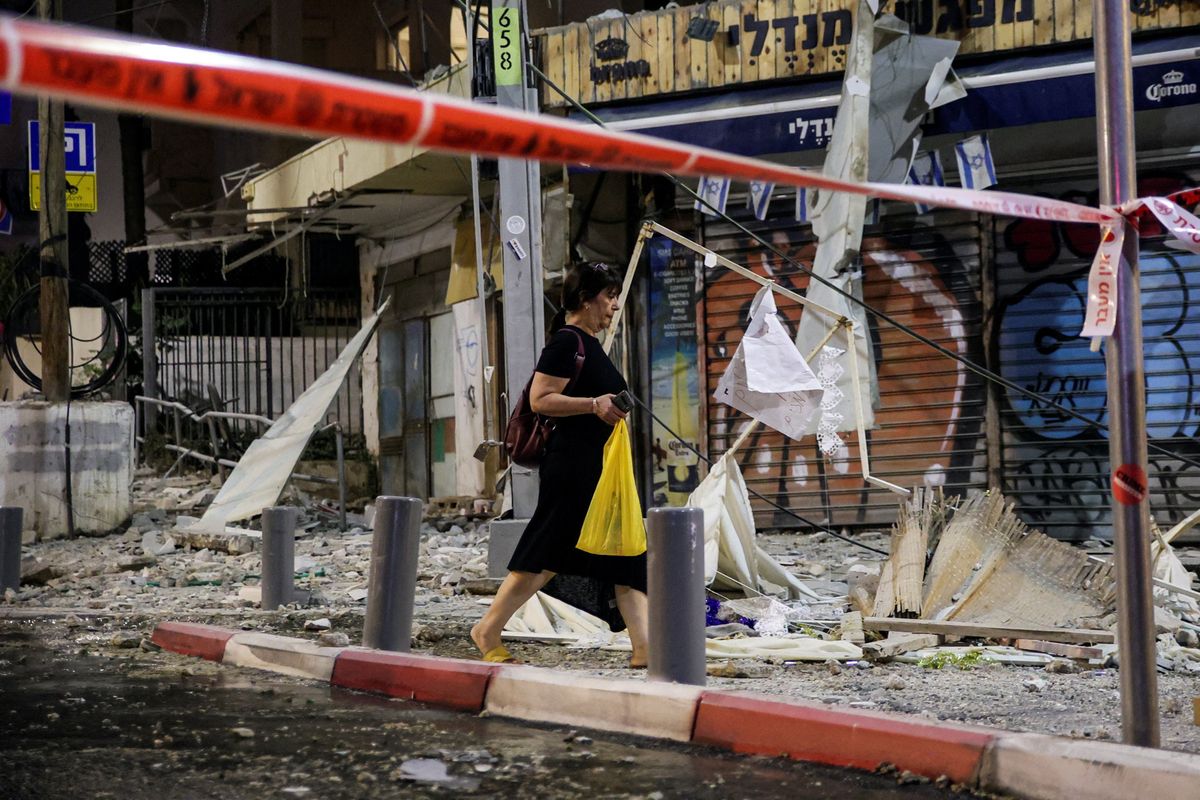Citizens awoke to a “dystopian nightmare” on Saturday – with sirens and rocket attacks but little by way of clear information, says Tamar Uriel-Beeri, managing editor of Jpost.com. She was in Tel Aviv visiting family on Friday and was forced to run with her husband and four-month-old baby to a bomb shelter on Saturday morning amid the sirens.
Communication flows improved by later in the day on Saturday, she said, and she and her family made their way back to Jerusalem in the evening. “We thought we had sort of a window of quiet in the waves of attacks. Unfortunately, we were wrong, and during the drive, we had to take cover three times.” That meant stopping along the freeway, pulling their infant son from his car seat, “sprinting to the side of the highway and basically using ourselves as human shields in the hopes that Iron Dome takes the hit instead of us.”
Back in the capital, things are a bit calmer, Uriel-Beeri says, but she notes that people in the center of the city are fearful and largely staying indoors. She expects her husband to be called for reserve duty at any moment.
While Israelis are uniting in the face of this crisis, it doesn’t take away from the sense of frustration many have with the government, Uriel-Beeri adds. “There is definite frustration. Well, frustration is an understatement. There is an outright anger at this having happened.”
How did this happen? Many observers, including Eurasia Group president and founder Ian Bremmer, have described the events as “Israel’s 9/11,” and referred to it as a shocking intelligence failure that took Israel by surprise. But others say there were signs an attack was coming.
Dr. Mordechai Kedar, a researcher at the Begin-Sadat Center for Strategic Studies at Bar Ilan University outside Tel Aviv, said Sunday that Arabic social media had been rife with discussions about this type of attack. “(It) was clear this was something [Hamas] was planning, for two reasons. First, they were talking about it, and not in secret. Second, this is more or less the only thing they can do. Every other thing actually failed.”
Kedar fears Israel must send a strong message to Hamas with a clear victory if it wants to avoid future border breaches.
Many Israeli observers agree on the need for a decisive victory but warn this conflict could be a protracted one. “This is not going to be a short affair. Israel may be facing months of combat. [And it] is going to get more intense before the situation comes to equilibrium,” says David Weinberg, a senior fellow at the Misgav Institute for National Security & Zionist Strategy in Jerusalem.
How will Israel respond? Israel has launched airstrikes and is expected to begin a ground incursion into Gaza in the next 24 to 48 hours. But Hamas’s taking of civilian hostages poses a tactical challenge. This is the first time a large number of Israeli citizens have been kidnapped.
Eurasia Group expert Ayham Kamel says Israel's military and political leaders “will be operating with competing priorities, punishing Hamas and ensuring that the hostages taken by the group are not killed. Given the intelligence failures so far, Israel will be faced with additional challenges in identifying the location of the hostages.”
Israel Defense Forces spokesperson Maj. Doron Spielman has said Israel will “do anything” to free and return hostages taken into Gaza.
Weinberg doesn’t believe the hostages will significantly impact retaliatory decision-making. They “won’t change the calculus at all,” he says, adding that “Israel will have to defend itself and crush Hamas no matter whether there are 10 or 100 or 200 Israelis squirreled away in underground terrorist tunnels.”
But the scale of Israel’s response may depend on yet another factor: Hezbollah. Lebanon’s Iranian-backed militant group has warned that “it could get more directly involved from Lebanon if Israel goes into Gaza in force,” says Eurasia Group expert Gregory Brew.


















